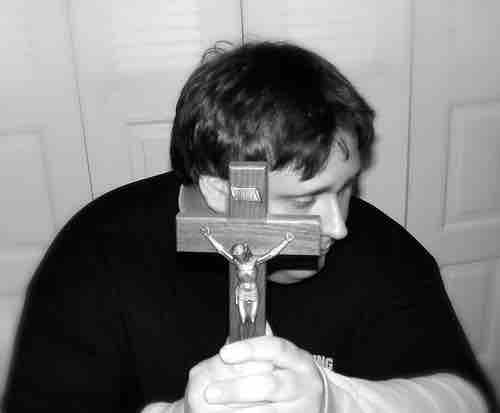Studying Religious Experience
Religious experience is the subjective experience in which an individual reports that he or she has either contacted a transcendent reality, or encountered, in some fashion, the divine. A religious experience is usually uncommon, because it rarely involves everyday activities and life experiences, and because it is enmeshed with a particular individual's perception of the divine. Studying religious experience objectively is a difficult task, because it is entirely a subjective phenomenon. Definitions of what exactly is divine, and what is not, might differ from person to person. However, scholars have identified certain features that seem to be either common or patterned among many religious experiences. This has allowed them to study religious experience objectively.
Numinous Experience
Rudolf Otto, a German thinker, attempted to theorize a single term that could explain the structure of all religious experience independent of cultural background. In his book, The Idea of the Holy, he identified this and called it the "numinous" experience. For an experience to be numinous, in Otto's opinion, it needed to involve two things. First, it had to include the mysterium tremendum, which is the tendency to invoke fear and trembling. Secondly, it had to include the mysterium fascinas, which is the tendency to attract, fascinate or compel. According to Otto, a numinous experience also has a personal quality to it, because individuals typically feel that they are opening some unique communication chain with the divine.
Communicating with the Divine
Communication with the divine can express itself in two ways, the first of which relates to ectsasy, the second to enthusiasm. In ecstasy, believers are understood to have a soul or spirit which can leave the body. Characteristic of the shaman, the goal of this type of experience is to leave one's body and experience transcendental realities. In enthusiasm, on the other hand, God is understood to be outside, other than, or beyond the believer. In this type of experience, a sacred power is believed to enter people occasionally, and gain possession of their bodies. A person capable of being possessed is sometimes called a medium.
Mystical Experience
Mystical experiences are in many ways the opposite of numinous experiences. In mystical experiences, all 'otherness' disappears, and the believer recognizes that they are one with the transcendent. The believer discovers that he or she is not distinct from other objects, the cosmos, the deity, or other realities, but part of a grand interconnected whole. This type of experience often comes into tension with institutional religion. Conventional religions, by definition, have strong institutional structures, including formal hierarchies and mandated sacred texts and/or creeds. Adherents of these institutional faiths are expected to respect or follow these mandates closely, all of which rely on demarcations and rigid hierarchies. Because mysticism emphasizes radical unity, which is the opposite of hierarchy, it is often deprecated or persecuted by members of these institutional faiths.
Spiritual Awakening
A spiritual awakening usually involves a person realizing, or becoming aware of, a sacred dimension of reality. While this may or may not be considered a religious experience, a spiritual awakening often has lasting effects upon an individual's life. The term "spiritual awakening" can refer to a wide range of experiences, including being born again, having a near-death experience, or achieving mystical liberation or enlightenment.

Catholic Religious Experience
Religious experience in Catholicism is accomplished by praying to Catholic religious symbols.